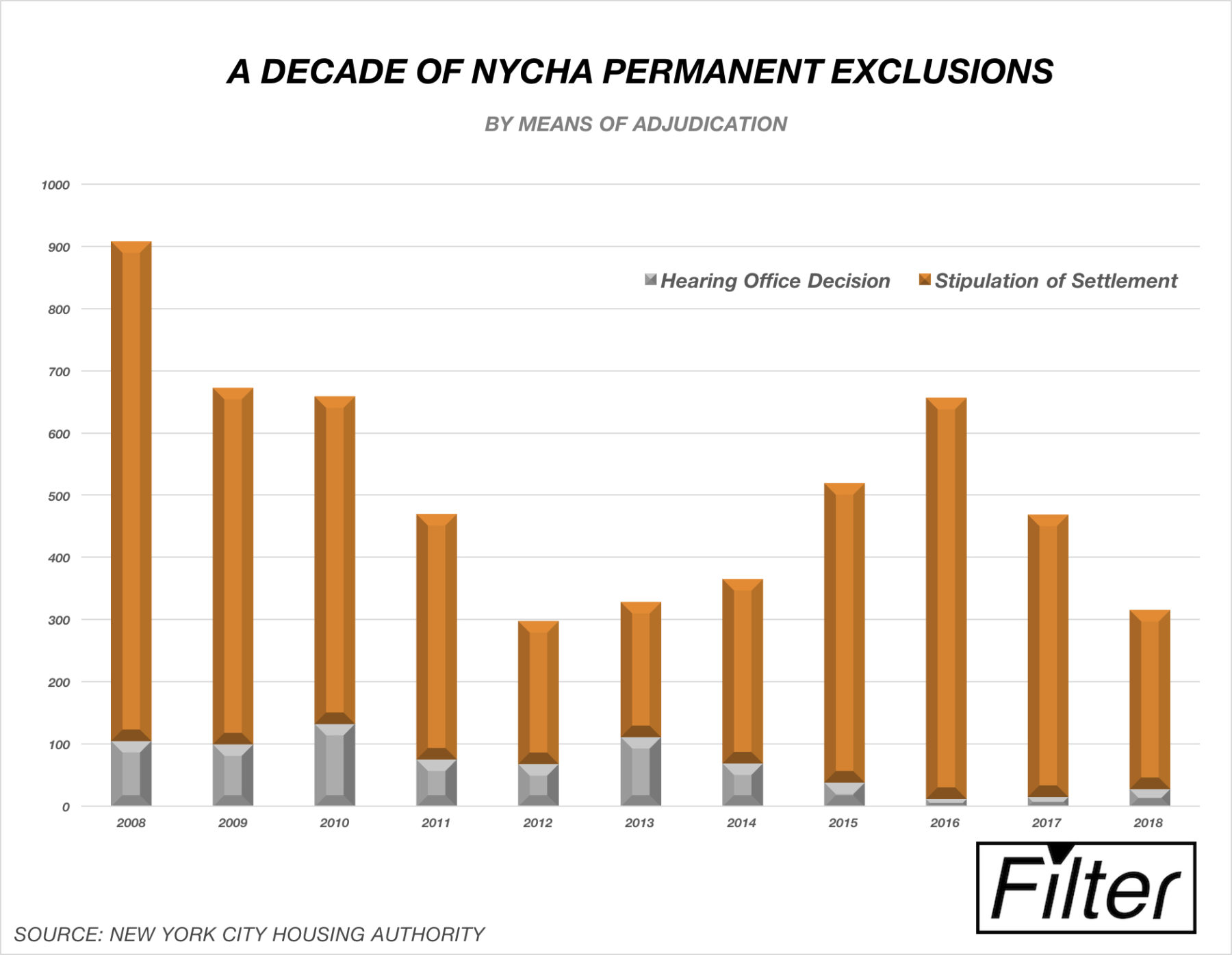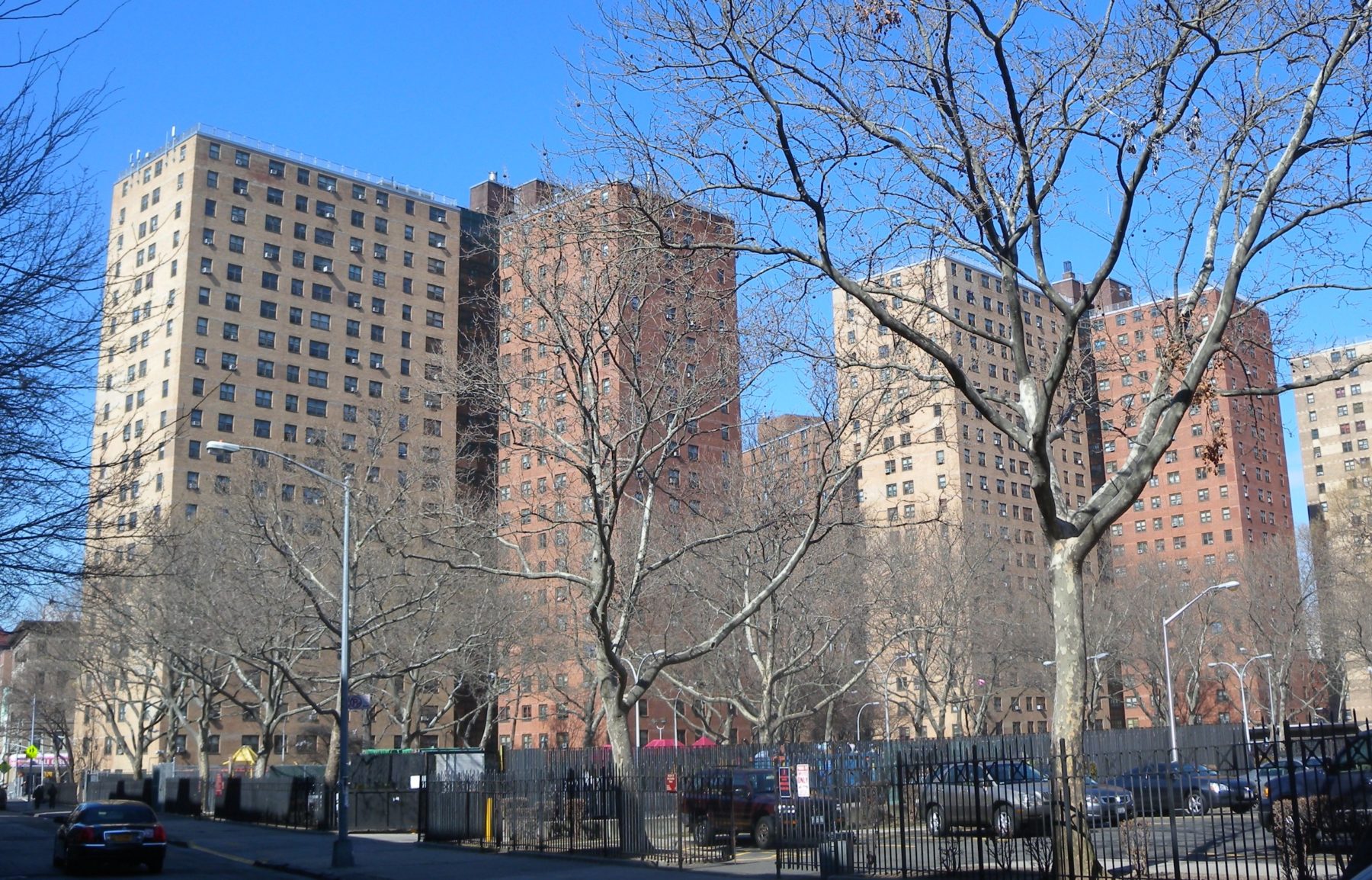Do you support reversing some of these provisions?,” Representative Alexandria Ocasio-Cortez from New York City asked Housing and Urban Development (HUD) Secretary Ben Carson in a House Financial Services Committee on May 21. Ocasio-Cortez was questioning his stance on public housing’s “One Strike and You’re Out” policy, which permits evictions on the grounds of minor drug offenses.
After some back-and-forth, Carson responded, “I’m always in favor of more flexibility.” Rep. Ocasio-Cortez smiled, “I’m happy to hear that,” soon thereafter adding that she was introducing federal legislation to codify these changes. Even though Carson’s response wasn’t an enthusiastic “Yes,” it has been heralded by some as a small victory in the face of the far-right Trump Administration.
.@RepAOC @AOC asks about One Strike Rule and No-Fault Policy and if Secretary Carson would support moving the policies over to a more holistic/case-by-case review.
@SecretaryCasron: “I’m always in favor of more flexibility.” pic.twitter.com/7ze07GqZc9
— CSPAN (@cspan) May 21, 2019
Back in AOC’s hometown, New York City public housing is taking baby steps towards aligning their policies with the impending statewide legalization of marijuana. Inspired by the Clinton-era War on Drugs that targeted people selling drugs in public housing, New York City Housing Authority (NYCHA) has torn apart families through “permanent exclusions,” which banned people associated with the apartment’s resident for suspected minor marijuana possession, and destabilized vulnerable New Yorkers’ housing security with potential eviction for such alleged behavior.
But that changed a little less than two months prior to the AOC-Carson questioning when Public Advocate Jumaane Williams, who recently opened up about his past experience selling marijuana, pushed through a resolution in the City Council on March 28 that directed NYCHA to stop denying applicants, as well as permanently excluding and evicting residents and their loved ones, for allegedly possessing marijuana in quantities of less than two ounces in non-public space, and between two and eight ounces in public space.
Prospective public housing residents can be rendered ineligible for up to three years if they are convicted of misdemeanor marijuana possession, under the federal law and HUD regulations overseen by Secretary Carson.
Additionally, “Residents are responsible for the conduct of all visitors, family members, and guests to their apartments,” according to the 2017 NYCHA tenant handbook. In a 2011 case, the son of a Brooklyn tenant was permanently excluded from NYCHA premises for 5 years because of an unlawful marijuana possession, which by definition had to have been less than 2 ounces. The tenant, Noreen Ottley, later became ill and had “‘no choice but to have [her son] help [her around the house]’ because she ‘couldn’t do things [herself]’,” she testified.
A permanently excluded person must wait “Until the family provides both written verification from a state-licensed drug treatment facility that the offending person has been drug-free for 12 months and a current, clean toxicology report;” or “Until the family provides substantial evidence that the offending person is no longer engaging in the illegal use of a controlled substance; and has been rehabilitated successfully so as not to interfere with the health, safety, or welfare of other tenants,” as writes the Tenant Selection and Admission Procedures obtained by Filter through a Freedom of Information Law Request. It should be noted that proving that a person no longer uses marijuana costs money—money that families with low incomes and people who are houseless might not have.
According to an up-to-date NYCHA “Application to Lift Permanent Exclusion,” a person who was found guilty of a drug offense, and with no history of such offenses, is, at minimum, banned for 2 years, in which they must remain “Crime-Free.” Black communities are subjected to biased police scrutiny, exemplified by their highly-disproportionate rate of misdemeanor arrests over the course of the past two decades. The question of who can have a permanent exclusion is bound up in the question of who is allowed to be considered “crime-free.”
Those arrested for drug use or possession “on or off of NYCHA’s grounds”—who have not even necessarily been found guilty—were labeled as “non-desirable,” and potentially facing eviction. According to state law, residents accused of “criminal activity,” including drug possession, are not afforded the opportunity “to discuss the matter with [the resident’s] Property Manager to see if the problem can be resolved.” Instead, evictions associated with “illegal drug activity” are expedited and sent directly to landlord/tenant court.
The intensity of the policy is exemplified in the NYCHA Tenant Handbook: “We aggressively target drug users and drug dealers with every resource available, and enlist the aid and support of many of your neighbors.”
Data on the annual NYCHA evictions associated with marijuana offenses is not available to the public, according to a NYCHA public information officer responding to a Freedom of Information Law request filed by Filter. But what is known: In 2018, 316 residents were permanently excluded from NYCHA properties. Although permanent exclusions are on the decline in the city (see figure below) Black and Latinx people are increasingly subject to marijuana arrests—making up nearly 90 percent of them—even though the NYPD has been directed to end such arrests.

The agency admitted that their policies are not set in stone, recognizing that it “is not governed by rigid rules that require it to pursue eviction or exclusion based on the type or level of criminal charge or any specific conduct.” Seeing that in January 2019, an all-time record 63,839 men, women, and children slept in New York City shelters each night, NYCHA faces an ethical imperative to reform its policies, like it did with regards to marijuana, to ensure that all New Yorkers have housing.
Photograph by Jim Henderson, via Wikimedia Commons





Show Comments